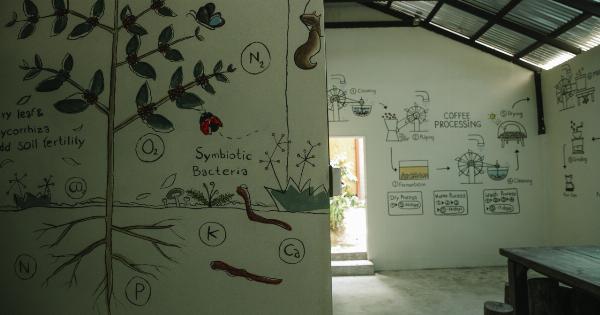Eczema is a chronic skin condition that affects millions of children worldwide. It is characterized by inflamed, itchy, and red patches on the skin, often accompanied by blistering and oozing.
While eczema can affect people of all ages, it is particularly common in children, with around 10-20% of infants and young children experiencing this condition. One crucial aspect of managing and treating eczema in children is understanding its duration and how it can vary from child to child.
What Causes Eczema in Children?
The exact cause of eczema is not fully understood, but it is believed to be a combination of genetic and environmental factors. Children with a family history of eczema, allergies, or asthma are more likely to develop the condition.
Environmental triggers such as irritants, allergens, heat, and stress can also aggravate eczema symptoms in children.
Acute Eczema: Short-Term Flare-ups
Acute eczema refers to the short-term flare-ups that children experience. These flare-ups typically last for a few days to a few weeks before subsiding. During this time, children may experience intense itching, dryness, redness, and inflammation.
The skin may also develop blisters and start oozing. It is important to avoid scratching the affected areas and to keep the skin moisturized during acute eczema episodes.
Subacute Eczema: Intermediate Phase
The subacute phase of eczema occurs after the acute flare-ups have subsided. During this phase, the skin starts to heal, and the symptoms become less severe.
The affected areas may still be red and itchy, but the intensity is reduced compared to the acute phase. Subacute eczema usually lasts for a few weeks to a few months. It is essential to continue moisturizing the skin and follow a prescribed treatment plan during this phase.
Chronic Eczema: Long-Term Management
In some cases, eczema in children can become chronic, meaning it persists for extended periods or recurs frequently. Chronic eczema requires long-term management and treatment to control symptoms and prevent flare-ups.
Factors such as genetic predisposition, weak skin barrier function, and ongoing exposure to triggers can contribute to the development of chronic eczema in children.
Managing chronic eczema involves adopting a proactive approach to skincare. This includes regular moisturization, avoiding triggers, using appropriate medications, and following a prescribed treatment plan.
It is important to consult a healthcare professional to develop an individualized management plan tailored to the child’s specific needs.
Factors Affecting Eczema Duration
The duration of eczema in children can vary greatly depending on multiple factors. Some of these factors include:.
1. Genetic Predisposition:
Children with a family history of eczema are more likely to experience longer-lasting and more severe eczema symptoms.
2. Environmental Triggers:
Exposure to irritants, allergens, and certain weather conditions can exacerbate eczema symptoms, prolonging the duration of flare-ups.
3. Skin Barrier Function:
Children with an impaired skin barrier function are more prone to experiencing prolonged eczema episodes.
4. Allergies and Asthma:
Children with allergies or asthma may have a higher risk of developing chronic eczema, resulting in longer-lasting symptoms.
5. Age:
Eczema in infants tends to improve over time, with many outgrowing the condition by early childhood. However, some children may continue to experience eczema into adolescence and adulthood.
Treatment and Management Strategies
The treatment and management of eczema in children depend on various factors, including the child’s age, severity of symptoms, and individual triggers. Common approaches include:.
1. Moisturization:
Regular moisturization is crucial to keep the skin hydrated and prevent dryness, which can worsen eczema symptoms.
2. Topical Steroids:
Doctors may prescribe topical corticosteroids to reduce inflammation and itching during acute flare-ups.
3. Trigger Avoidance:
Identifying and avoiding triggers such as harsh soaps, certain fabrics, and allergens can help minimize eczema flare-ups.
4. Antihistamines:
In some cases, doctors may recommend oral antihistamines to help relieve itching and improve sleep quality during acute flare-ups.
5. Wet Wrap Therapy:
Wet wrap therapy involves applying wet dressings over the affected areas to soothe the skin and enhance the absorption of medications.
6. Immunomodulators:
In cases of moderate to severe eczema, doctors may prescribe immunomodulators to manage inflammation and reduce the need for topical steroids.
7. Psychological Support:
Eczema can have a significant impact on a child’s emotional well-being. Psychological support, such as counseling or support groups, can help children cope with the challenges associated with eczema.
8. Allergy Testing:
In some cases, allergy testing may be recommended to identify specific triggers that can be avoided or minimized in the child’s environment.
9. Education and Lifestyle Modifications:
Parents and caregivers should receive education about eczema management, including proper skincare practices, avoiding triggers, and lifestyle modifications to support the child’s overall well-being.
10. Regular Follow-up:
Children with eczema should have regular follow-up appointments with their healthcare provider to monitor their condition, make any necessary adjustments to the treatment plan, and address any concerns or questions.






























